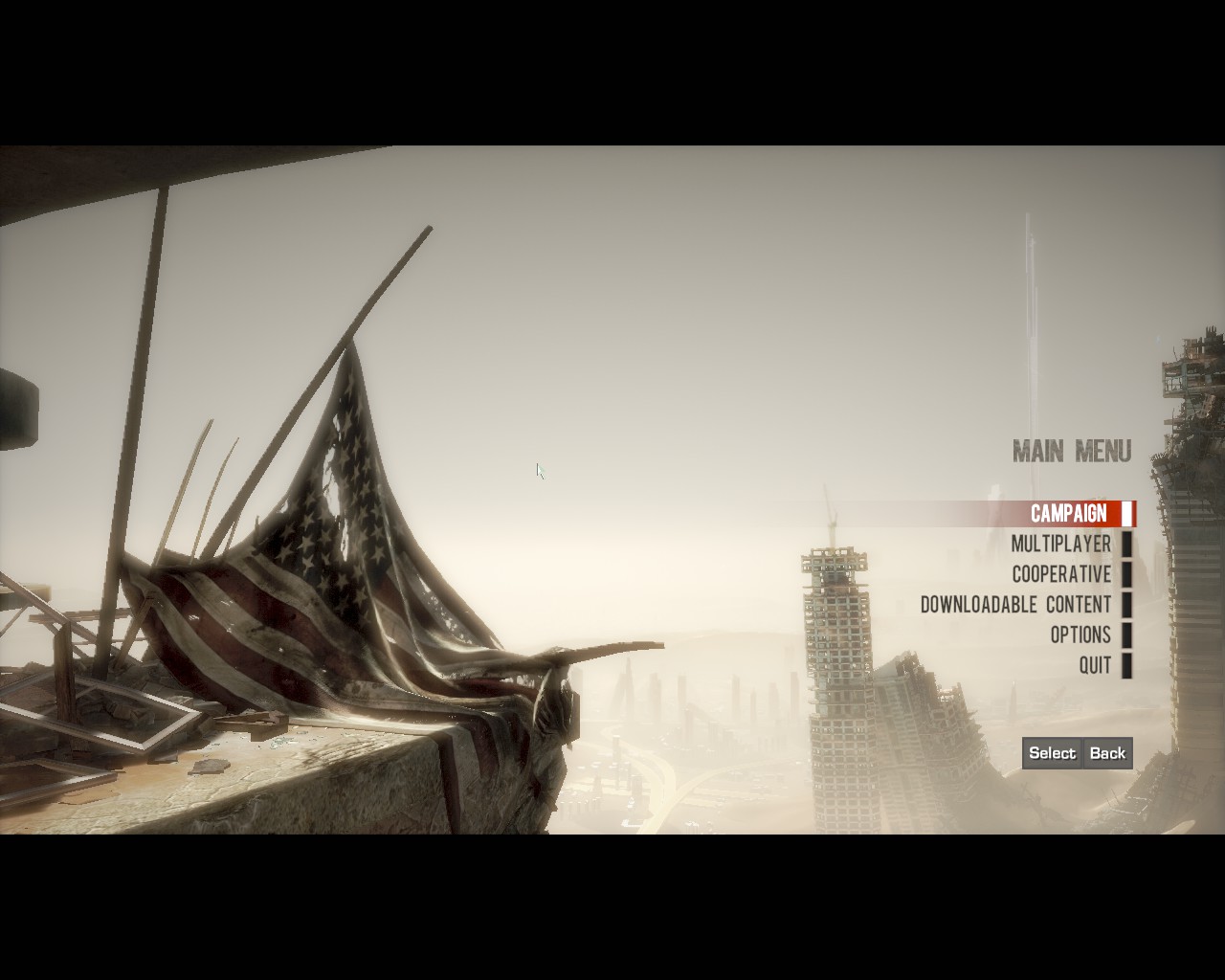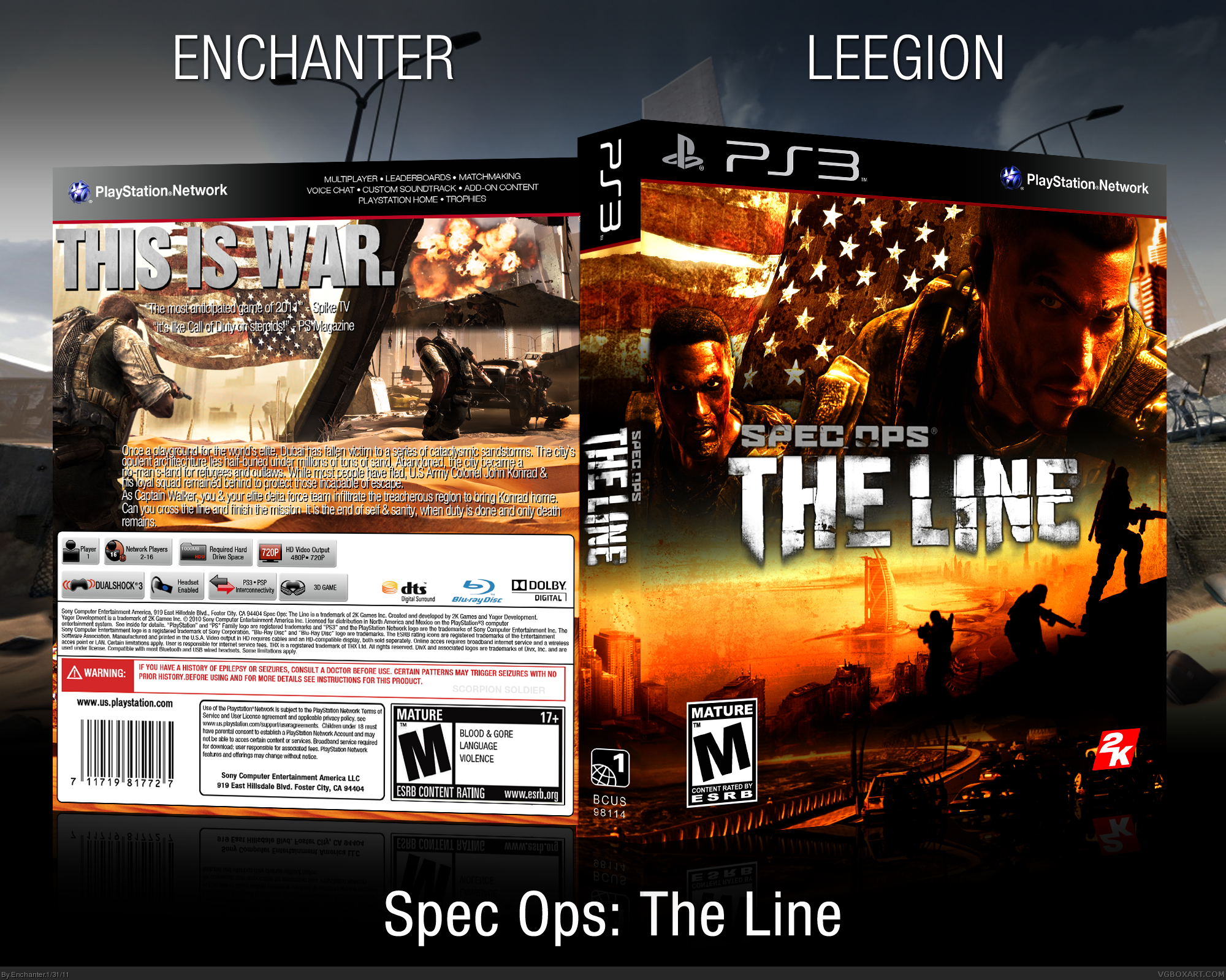
Before you call me Judgey McJudgerson, you do what you want with your kids. Spec Ops: The Line (which I bought newly used at GameStop) prompted me to write this for the reasons stated above and as a warning to parents who blindly let their kids play violent video games without questioning what they are playing, or playing through them first. Rarely do I review a game that wasn't sent to me by the manufacturer. These psychological elements, this tortured pain of watching the destruction of society and humanity during a war, however minor the war, has turned Spec Ops: The Line into probably the best shooter I've ever played. Basically what I am saying, is this is not your run of the mill shooter. The way the game balances Walker's continuing decline into the darkness of humanity and justifying his actions throughout the game is heavy stuff. The effect, to a child who is not desensitized enough, (sadly) can be detrimental. I mention this to reiterate that the designers of this game haven't just thrown this stuff in there to make it "different." This stuff is in there for effect.

Your two squad-mates continuously sit on your shoulders, piping in alternate decisions that have equally disturbing consequences. The atrocities that you see are compounded by the atrocities committed by the CIA, trying to cover it all up, and then by you as you push forward believing that your moral compass is pointing in the right direction.

Pressing forward, into the darkness, is the only way.

The only choice that you cannot actually make. Leaving seems, in the end, the only rational and morally sane choice. You can never leave Dubai in the game obviously that would end the game prematurely, but this "option" is brought up numerous times by Walker's team and the rogue Battalion commander. While neither choice stops the game cold, either one has its own moral caveats. There is a point where you are offered a choice, shoot the civilian stealing water or the soldier who killed the civilian's entire family in retaliation. This is never clear until the end of the game, but along the way you begin to realize something is terribly wrong with Walker's moral compass, or should I say - your moral compass. Without giving away the ending of the game, there is a heavy emphasis on severe psychological trauma to the main character including hallucinations and dissociative disorder. The decision system, accompanied by troubling imagery and constant moral compass bickering by your squad-mates, instead serves to deliver the horror of war to your conscious mind - hoping to make you feel as your character feels. You'll still be headed in the same general linear path. The game does not depend on the decisions to guide the gameplay either that part won't be affected. Unlike many games that have decision-based systems, most of them being RPGs such as Fable, there is no good or bad.
/cdn.vox-cdn.com/uploads/chorus_image/image/1943119/screen11.0.jpg)
As far as gameplay, Spec Ops: The Line is an over-the-shoulder third person shooter, but as far as in-war morality it tests a new dimension of decision making. There is no moral compass here kill everything. Then there is the pure chaos in form delivered by over-the-shoulder shooters like Gears of War. Though that intensity comes less from the impression of urgency or morality and more from the blood and sheer volume of enemies. The intensity in the way-too-short campaigns of the latest Call of Duty franchise entries has been powerful. That's not to say that games haven't been trying.


 0 kommentar(er)
0 kommentar(er)
